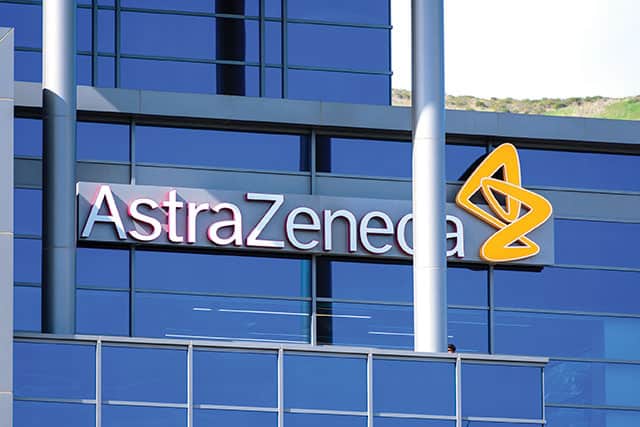
AstraZeneca (AZ) has announced positive results from its latest HIMALAYA phase 3 trial, which showed that a single dose of tremelimumab – an anti-CTLA4 antibody – combined with Imfinzi (durvalumab) produced a statistically significant improvement for overall survival.
This was compared to the use of sorafenib as a first-line therapy for patients diagnosed with unresectable hepatocellular carcinoma (HCC) who were both ineligible for localised treatment and had not received previous systemic treatment.
Liver cancer is the third highest cause of cancer-related deaths, ranking as the sixth most commonly diagnosed cancer, while HCC is the most common form of liver cancer. Patients diagnosed with advanced liver cancer have a 7% survival rate after five years.
The dosing schedule of Imfinzi and tremelimumab has been referred to as the STRIDE (Single Tremelimumab Regular Interval Durvalumab) regimen, with results from the latest phase 3 trial showing a reduction in the risk of death of 22% when administering the single dose every four weeks.
Patients undergoing the regimen were estimated to have a 31% chance of survival at the three-year mark versus 20% for those treated with sorafenib.
In addition to this, the combination showed no increase in severe liver toxicity and demonstrated significantly fewer discontinuations as a result of treatment-related adverse events, compared to sorafenib.
AZ is scheduled to present results from the trial on 21 January at the 2022 American Society of Clinical Oncology (ASCO) Gastrointestinal Cancers Symposium. Alongside this showcase, Imfinzi data garnered from the TOPAZ-1 phase 3 trial will be presented as a demonstration of the medicine when used as a treatment for advanced biliary tract cancer.
Ghassan Abou-Alfa, attending physician at Memorial Sloan Kettering Cancer Center and principal investigator in the HIMALAYA phase 3 trial, commented: “Patients with unresectable liver cancer face a dismal prognosis, and new treatment options are critical to improving long-term survival. The three-year overall survival rate and favourable safety profile seen with the STRIDE regimen set a new benchmark in this setting and underscore the potential of this innovative treatment approach.”
Speaking on behalf of AZ, Susan Galbraith, the company’s executive vice president of Oncology R&D, said: “The HIMALAYA trial reinforces our scientific approach for tremelimumab, tapping into the potential of CTLA-4 inhibition and a unique dosing regimen to prime the immune system to help patients live longer and with minimal side effects. We look forward to bringing potential new treatment options to patients with unresectable liver cancer, an area of high unmet need, as quickly as possible.”




